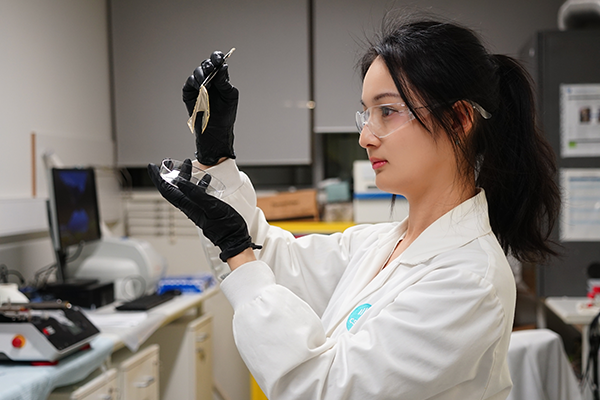Monash University developing flow batteries for rooftop solar energy
Engineers have developed a water-based battery that can help homes store rooftop solar energy safely, cheaply and more efficiently.
The flow batteries have existed for decades but have normally been used in large-scale energy storage because of the large size and slow charge speeds.
ADVERTISEMENT
Monash University PhD candidate at the Department of Materials Science and Engineering and the first author of the study Wanqiao Liang says the new core design fixes the speed issue so houses can be a key player in energy transition.
“We’ve taken a safe, affordable chemistry and made it fast enough to capture rooftop solar in real time,” Wanqiao says.
“We’ve engineered a membrane that finally makes organic flow batteries competitive for residential and mid-scale storage. It opens the door to systems that are not only cheaper, but also safer and simpler to scale.”
Monash’s design of the flow batteries combines safety, low cost and high-speed performance.
“The key was improving ion selectivity, letting the good ions through quickly while keeping unwanted ones out. Our new membrane achieves this balance, allowing fast, stable operation even at high current densities,” Wanqiao says.
“We outperformed the industry-standard nafion membrane in both speed and stability, running 600 high-current cycles with virtually no capacity loss, that’s a major leap forward for this kind of battery.”
A careful balance was essential for making the batteries work for rooftop solar at home. It’s a type of battery to put in the garage. It’s non-toxic, non-flammable and made from several materials while keeping up with solar power.
The team at Monash is 3D printing prototype systems and testing them under real-world conditions.
Flow batteries store energy in liquids rather than solid materials like those in lithium-ion batteries, making them cheaper to manufacture, safer to operate and easier to scale.
“We’ve developed a new type of membrane inside the battery that guides the flow of materials better – kind of like adding lanes to a highway. That means faster charging, longer battery life and better performance overall,” Wanqiao says.
-
ADVERTISEMENT
-
ADVERTISEMENT


